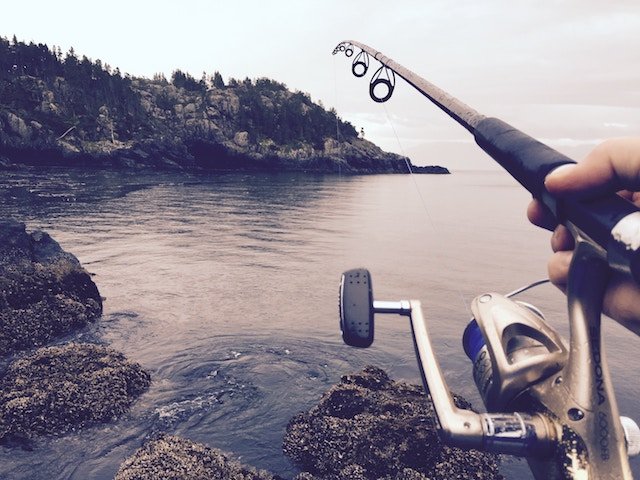Fishing is one of the best human hobbies! Whether for survival or adventure, it has existed for almost as long as man has. There are many advantages to spending time fishing, whether alone or with friends or family. The trip is no longer about a single individual, and parents must consider the factors contributing to their children’s enjoyment of the camping trip. Bear in mind that camping and fishing need the proper equipment to be enjoyable. Here are a few items you’ll need for a camping and fishing vacation.

1.Tent
You must set up a shelter on the campsite. The most critical item is your tent. Purchase a durable tent for your camp. The tent should be large enough to house your family comfortably. They should have unrestricted movement inside it. If you value privacy, create provisions for it. Some tents provide seclusion. It would help if you kept in mind that making a tent is not simple. After all, pitching a tent is not something you do every day at home. This is why you should practice mounting at home before leaving on your vacation. Practice mounting the tent until you are certain that you can do it without difficulty. Ensure that you bring everything necessary to erect the tent. While we’re on the subject of shelter, you should also pack sleeping bags and blankets.
2.Fishing gear
Consider the concept of seasonality. Are you fishing from a dinghy on a summer stream while camping? You will need sunblock and insect repellent! Take some hand warmers and a beanie with you. Consider your requirements and the surroundings while making decisions. In the autumn, you’ll want to be prepared with plenty of layers if the weather changes unexpectedly!
Make certain that you have the necessary fishing gear when camping in the region. We’ve discovered that although certain places need no-see-um netting, others are so dusty and filthy that a million face and hand wipes are required. Conduct research and be prepared!
First aid is another essential thing that we never travel without—antiseptics, gauze and bandages, and fever reducers, among other things. Prepare as though you’re going to be stuck, cut off from society, in the worst-case situation.
3.Location
Solicit assistance from local tips and guidance! This is an effective method of obtaining a successful catch. Inquire friends and relatives about their knowledge of the areas you want to visit. If you don’t know anybody in the region, hire a guide or visit a local tackle shop and ask the staff where they’ve had recent success.
Position oneself near the water is another apparent need for a good fishing day, but it becomes more important while camping. Are campsites need to be reserved in advance through a government website or. Camping in Lost River State Park provides a serene environment when camping.
4.Methods of fish storage
While many campsites, particularly state parks, include fish cleaning stations, other remote places do not. Any outdoor table serves as an excellent work surface in this situation. You should have the proper storage and transportation equipment in place to ensure the safety of your fish.
Keep the fish on the stringer in water and then in an ice water refrigerator until you’re ready to cook it; this helps preserve the fish’s taste and freshness. When you return to the campground, clean and fry the fish immediately or place it in a bag and freeze it for later use.
5.Cooking Fish
Ensure that you have the right tools to facilitate sage fish cooking while camping for a good overall experience. Pack your bags with fish recipes of your choice and protective gear.
On big fish, use the fillet technique to avoid scaling or peeling. Turn the fish over and grasp the head. Cut downward to, but not through, the backbone with the fillet knife inserted behind the pectoral fin.
Many individuals are familiar with fishing and camping, but the idea of combining the two is intimidating. The suggestions above will assist you in having an unforgettable

